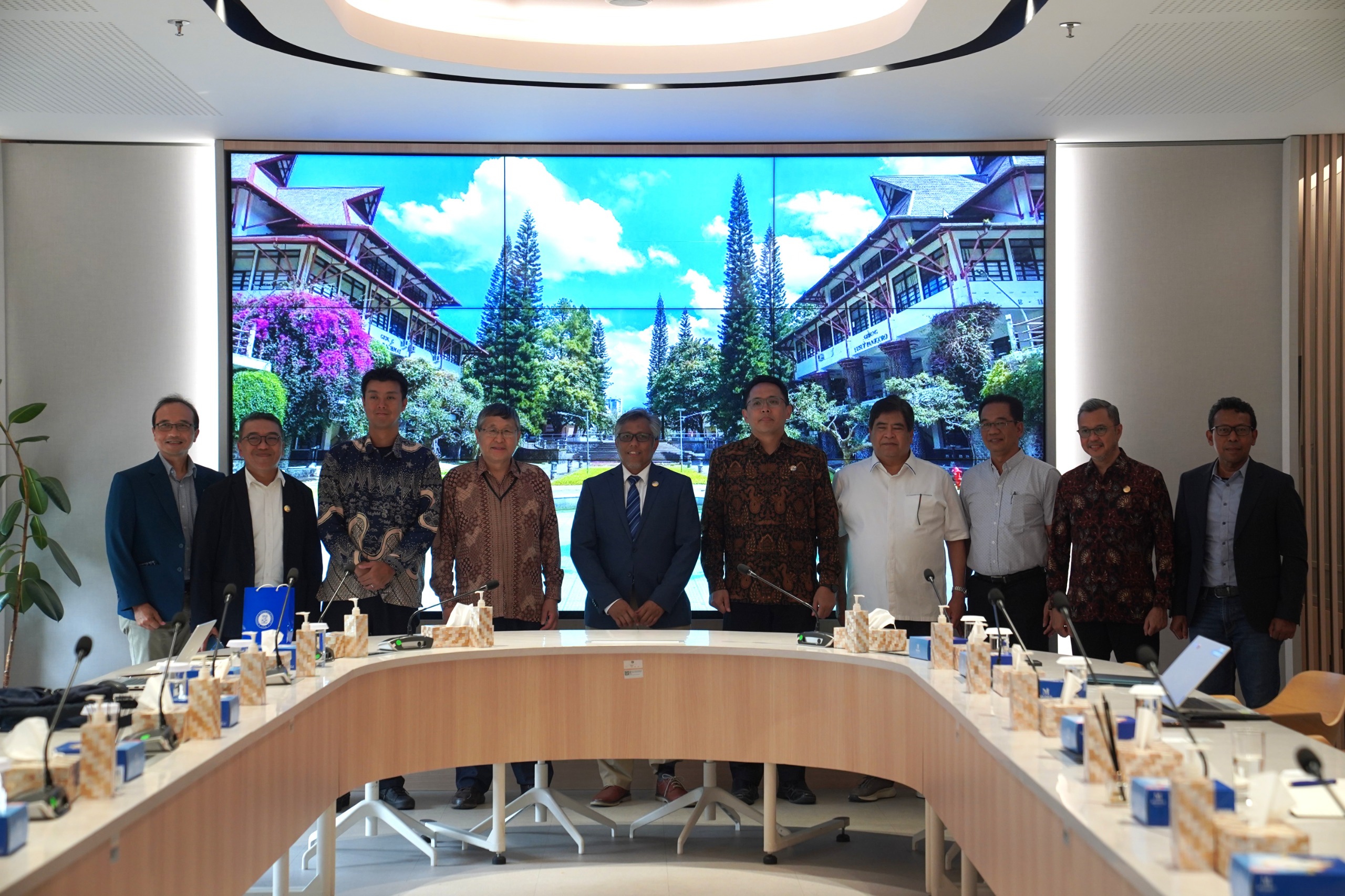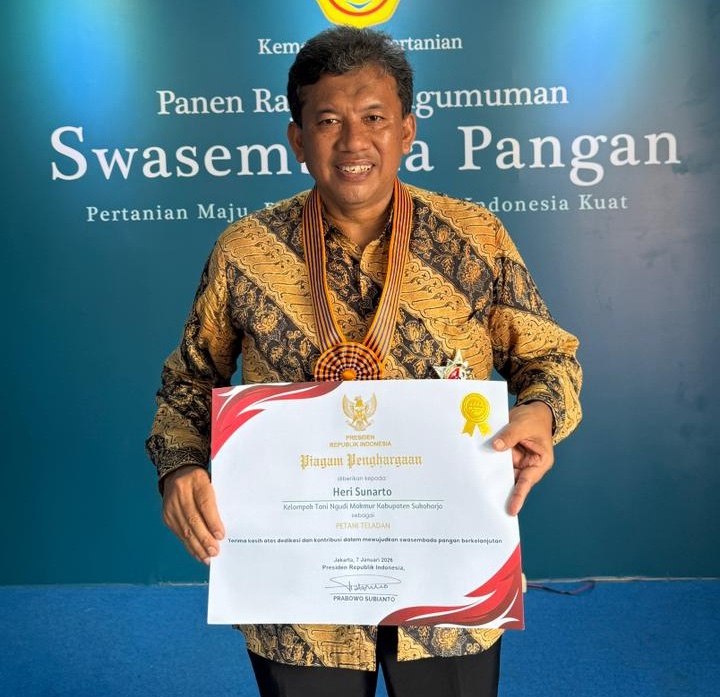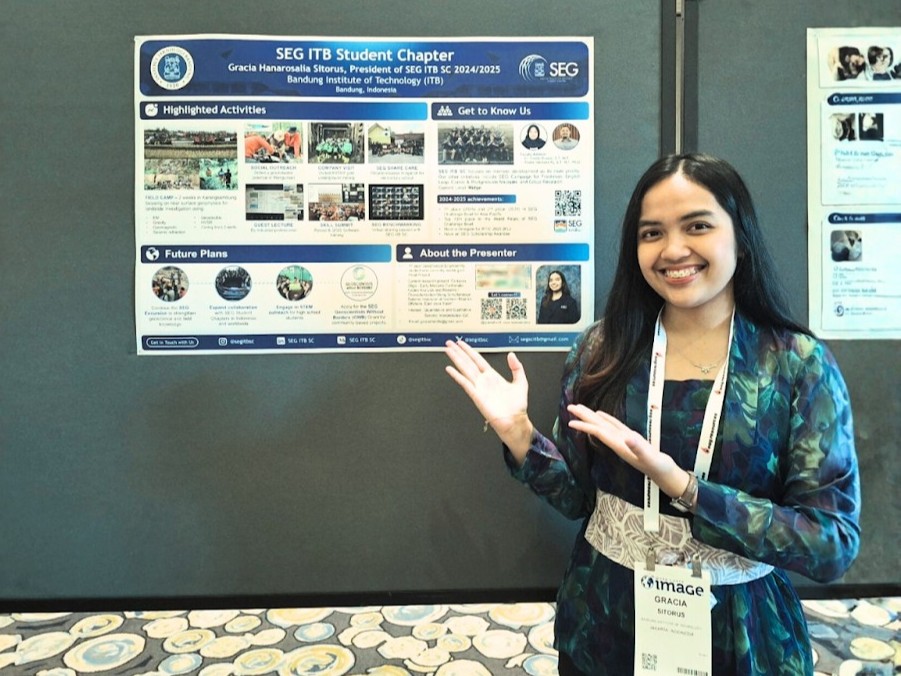Commencement Speech Duta Besar Swiss, H.E Yvonne Bauman Tentang Pentingnya Pendidikan Bagi Kemajuan Dunia
Oleh Ahmad Fadil
Editor Ahmad Fadil

BANDUNG, itb.ac.id – Dalam suasana peringatan Hari Pendidikan Nasional (Hardiknas) setiap tanggal 2 Mei yang masih segar dirayakan, kita diajak berefleksi dari pencapaian pendidikan yang telah berlangsung di Indonesia.
Pada Wisuda Kedua ITB Tahun Akademik 2017/2018 Sabtu, (07/04/18) lalu, Duta Besar Swiss untuk Indonesia, Timor Leste, dan ASEAN, H.E Yvonne Bauman menyampaikan pentingnya pendidikan bagi kemajuan dunia dalam commencement speech yang ia bacakan di hadapan ratusan wisudawan S1 di Gedung Sasana Budaya Ganesa.
Berikut adalah kutipan dari commencement speech tersebut:
"Selamat pagi dan salam sejahtera untuk kita semua.
It is a great honor for me to be with you on this very special day.
Thank you for the invitation.
I always enjoy coming back to the historic city of Bandung – to which I have kind of a special relationship. Already as a young student of history, decades ago, I read about a place called Bandung which became famous as the location of the Asia-Africa-Conference in 1955 – the “Bandung Conference” - and hence was significant for overcoming colonialism and the creation of the Non-Aligned Movement. As a nice coincidence, my very first visit to Bandung was to attend the Asian African Commemoration Conference which was held 60 years later, in April 2015.
One year after that, I was back here, this time with an official delegation from Swiss universities and research institutions led by the Swiss State Secretary for Education, Research and Innovation. We had the pleasure and the privilege to visit your prestigious university, the Institut Teknologi Bandung, and meet with the Rector and faculty staff. The Swiss delegation was very impressed with the quality and the standing of ITB which has produced so many of Indonesia’s top scientists, engineers and business leaders. They also appreciated the beauty of your campus.
So I am extremely pleased to be back again today. And first and foremost: Dear graduates, my heartfelt Congratulations on your great achievement! Congratulations as well to the parents who have made many sacrifices to reach this day - you have all the reason to be proud of your youngsters!
I must admit that besides being very honored when I received the invitation of the rector to deliver a commencement speech, I also felt some respect and awe confronted with the task I was given.
I asked myself: What might these young graduates from an outstanding technical university in Bandung expect from me? What am I going to tell them? What might be of any interest to them, on this very important occasion?
And since I was not familiar with the institution of a commencement speech – it does not exist in Switzerland - I did first what one usually does in such a situation: I referred to Mister Google and “googled” the term “Commencement speech”. But what I found there impressed me even more. Mr. Google revealed that famous commencement speakers at different universities in the past had been, among others, Winston Churchill, John F. Kennedy, Barack Obama, Hillary Clinton, Steve Jobs – and even President Trump! So these are footsteps I should follow in, I thought, - and was a bit terrified.
Next, I turned to our Embassy’s academic intern who recently graduated with his master’s degree, and asked him what he would expect if he were sitting in this room, or – even better - what he would like to hear? Instead of answering my question he himself referred to the internet and came back with an essay called: “How to write a Killer Commencement Speech”? A Killer Commencement Speech? Are you kidding me? That raised the stakes even higher. I read the essay, and I thought I’ll give it a try, although I don’t have anything like a killer instinct.
Two weeks ago, the headline on the front page of the Jakarta Post read: “World’s last male northern white Rhino dies”. The death of this symbolic animal, a rhino called Sudan, brings the sub-species of northern white Rhinos close to extinction - since there are only two females remaining alive. The world has lost another species of wildlife. When Sudan was born in 1973, there were still about 700 rhinos of his kind left in existence.
One week earlier, another message had moved the world: One of the brightest minds in the world, the physicist Stephen Hawking had died.
What is the common denominator of these two (unrelated) news? No, it is not death, it is the importance and the enabling power of education. The great statesman Nelson Mandela said: “Education is the most powerful weapon, which you can use to change the world.” Stephen Hawking was confined to a wheelchair, he could not move his body, he had to use a voice synthesizer to speak, and yet through education he was able to overcome his illness for over 50 years, using his brain to research the universe, gravity and black holes and to explain his findings to a broad public. He alone did not change the world, but the results of his research might lead to such changes.
If we want to overcome, stop and reverse current trends and challenges, such as climate change and the further extinction of wildlife species, we need to change. And we need to use education as a weapon or a tool.
Collectively, our generations on earth, may now be reshaping the geography of our planet for thousands of years to come. Humanity is risking its own well-being by plundering and harming nature.
A comprehensive research report by the Intergovernmental Science-Policy Platform on Biodiversity and Ecosystem Services (IPBES) which involved 550 leading experts recently warned that Asia-Pacific fish stocks could run out by 2048 (within 30 years, one generation).
On the radio, I have recently heard the story of a forest ranger in the Democratic Republic of Congo. When he was a teenager he used to earn money as a poacher of wild animals. He wanted to save money to go to the university later. He eventually achieved to study biology and learned how important the conservation of wildlife is. After graduating, he returned to his village, and he now dedicates his life to the protection of wild animals and forests as well as to educating other people about the importance of conservation.
Listening to this story, I was thinking of you, the young graduates, who just have been given the powerful weapon of education, as Mandela put it. Or I should say, you have earned it, through your hard work and diligence in your studies. Now you might use the tool of education – in one way or the other – to change the world, to make the world a better place. And you probably have better chances to make an impact, to make a difference, than the generations before you. The reason is information technology. Thanks to the internet you even don’t have to go far out there – the world begins at home.
When I was studying at the university there were no personal computers or laptops, no hand phones and of course – no internet. So to obtain what would today be a master’s degree I had to type my thesis which was over 300 pages long on a typewriter! Can you image? I guess, you probably cannot, since today a world without laptops, tablets, smartphones and internet is just unthinkable. You probably have never seen a typewriter in your life! It was quite painful – because when a major error happened one had to type the entire page all over again.
I got hooked up to the modern technology in 1986, touching my first personal computer – an Apple MacIntosh - when I was starting to write my doctoral dissertation. But with this very basic computer I could only write documents and print them but still not send them through e-mail. E-mail didn’t exist yet. All the papers we wrote at the university had to be photocopied to be shared with others, and photocopies were expensive. This was the time – in the late 80s - when the British physicist Tim Berners-Lee was doing research which would lead, about 10 years later, to the invention of the internet. By the way, this happened in Switzerland, at the CERN (European Organization for Nuclear Research) in Geneva.
This invention changed my life as a young professional - as it did for millions of people. Everything became so much easier – writing, researching, communicating! The arrival of computers, e-mail and internet was just a blessing! And the good old typewriter could be consigned to the dustbin of history - or given to a museum.
Today technology advances in ever greater leaps. In some places, for instance, you can nowadays pay in a store or in a taxi with your hand-phone by simply holding it over a scanner. But in the future, you might not even need a phone anymore: You will be able to pay in a supermarket with your face, by face recognition, or withdraw money from an ATM counter just by scanning your face. In China there are already tests with this technology. This might again make life easier - but it will also have its downsides. What about the security of these personal data? What about our privacy? These are unanswered questions.
The current social media can give us an example. Studies have analyzed the electoral campaign for the Presidential elections in the US in 2016. They estimated that roughly 15% of all Twitter accounts in the campaign were not managed by human beings but by software robots, so called “Bots” (Alessandro Bessi/Emilio Ferrera). This means that 400’000 Bots participated in the election campaign and created around one fifth of all tweets, containing ever more sophisticated political propaganda.
We have arrived at the area of post-truth and fake news, disinformation and targeted – maybe illegal – abuse of social media contain the risk that democracy is being undermined and election campaigns are manipulated through unknown dark forces, maybe even controlled from abroad.
One year ago, 28 years after submitting his proposal for the World Wide Web, Tim Berners-Lee, the “father” of the Internet, published an alarming open letter in several languages: “It’s too easy for misinformation to spread on the web”, Tim Berners-Lee wrote. And he also warned that: “We’ve lost of our personal data”.
This reminded me of a story of a 19 year old high school student in Switzerland who stole and entirely copied the entire data of a smartphone (without touching it) from another student of the same school, unknown to him, by using a Linux program. “These are complex problems, and the solutions will not be simple”, Tim Berners-Lee went on.
But we will have to tackle these problems. And for this, education will again be crucial: We need education and science in order to find technological solutions. Education to enable people to distinguish between bot and human being, between fake news and facts. Education to change the trend of misinformation and manipulation. Again: Education to change the world.
When I am speaking here about current trends which are changing the world – for better or for worse -, I cannot leave out artificial intelligence (AI).
Recently, an article in the press caught my attention.
It was about “vacuum-powered robots in the household”. So far, I have only been familiar with the vacuum cleaner in my household – although nowadays such a basic device can also be a robot. But the future new robots with artificial intelligence will be able to do all sorts of things, in the household and in the workplace - and they can learn! They will change batteries, care for elderly people, receive visitors, and maybe even teach classes at the university!
Digital transformation will allow companies to produce more with less resources, such as energy and water. It will help solve many global problems. Digital transformation will change the world in which we live and work. But as always, there will also be downsides. A more pessimistic outlook on the downsides I read in the British magazine “The Economist” ten days ago: ”In some jobs the choice will be between being replaced by a robot and being treated like one”. Google’s boss, however, sees it much more optimistic. He said that AI will do more for humanity than fire or electricity.
In twenty years, you will probably work in jobs which don’t exist yet today. Some jobs will be obsolete, new ones will be created. To thrive in such a world, education is key in order to adapt to new jobs and to continuous technological changes.
If you think that the picture of current trends and challenges which I was drawing here, is much too gloomy, then I can tell you that this was not at all my intention. There is ample reason to be optimistic about the future. Poverty, for instance, has been reduced overall and will be reduced further, as more and more countries are making progress to reach the Sustainable Development Goals of the United Nations by 2030
Today, much more people around the globe live in a democracy, compared with 30 years ago – Indonesia, the 4th largest country in the world, being one important example of a successful transition towards a vibrant democracy. And more women in the world, Indonesia included, enjoy equal rights today and play an increasingly important role in society, business and politics. So I was pleasantly surprised yesterday to hear that currently more than half of the students at ITB are women and more than one third of the today’s graduates are female. My heartfelt congratulations on that
And although there are a lot of headlines about conflicts and mounting tension in the world, the fact is that the regions of Europe, Latin America and also Southeast Asia for example are today much more peaceful than in the 20th century or the centuries before.
Or think of modern medicine. A few generations ago people were dying of infectious diseases which today can be easily cured. Even for cancer there is ever more sophisticated treatment. The world is definitely a better place today.
Education is changing the world.
Human ingenuity has solved many problems, it will solve many more. You can use education as a weapon to change the world. You can contribute to make the world a better place. I invite you and encourage you to do so – even if it is not easy. Be an agent of change! “The future belongs to those who give the next generation reason for hope.” These are the words of the French scientist and philosopher Pierre Teilhard de Chardin (1861-1955).
Whatever you are going to do in your life, be assured that with the degree you are receiving today, you already have achieved something great. And you can build on it – now and in the future.
“The beautiful thing about learning is that no one can take it away from you”, said the famous American blues singer B.B. King.
But I would like to conclude coming back to Stephen Hawking for whom the funeral was held last Saturday in Cambridge, UK. He asks us to “remember to look up at the stars and not down at your feet. Try to make sense of what you see and wonder about what makes the universe exist. Be curious. And however difficult life may seem, there is always something you can do and succeed at. It matters that you don’t just give up.”
I wish you a lot of success. Semoga sukses!
Terima kasih banyak."










